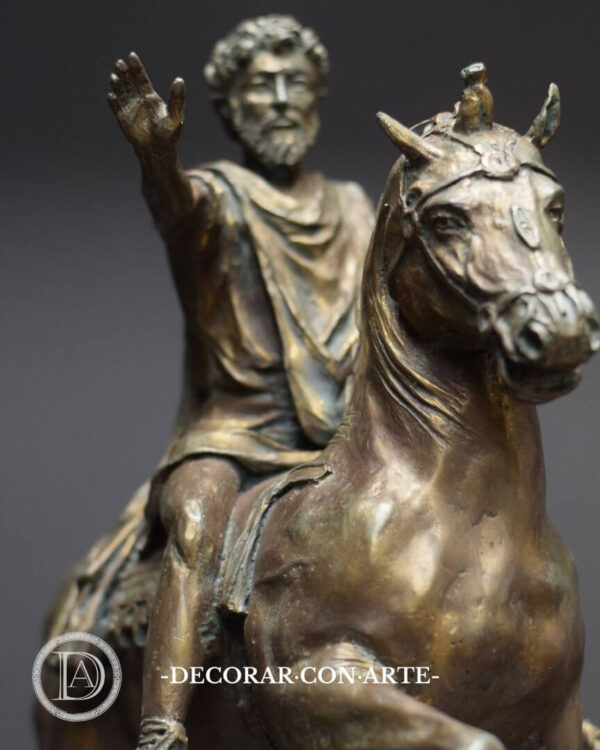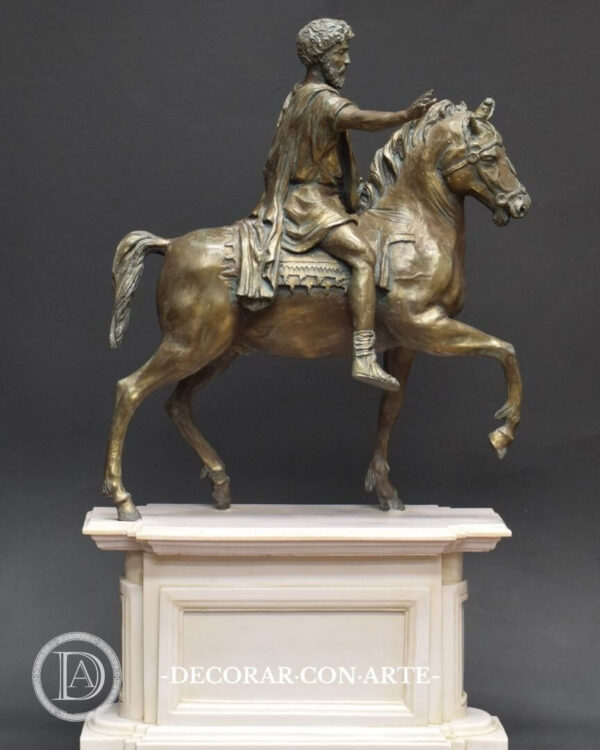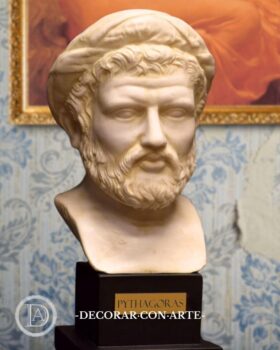Description
Equestrian statue of Marcus Aurelius, reproduction made of molded marble (marble dust with resins). Application of patinas to imitate aged bronze.
Measurements:
- Sculpture with pedestal: Height: 64 cm. Width: 38 cm. Depth: 20 cm.
- Base measurements: Height: 19 cm. Width: 36 cm. Depth: 16 cm.
- Approximate weight: 12 kg.
Reproduction inspired by the equestrian statue of Marcus Aurelius, currently exhibited in the Capitoline Museums in Rome.
Dated between 161-180 AD, the original bronze sculpture was located during the Middle Ages in the Basilica of St. John Lateran until 1538 when Pope Paul III placed it on the Capitoline Hill. Michelangelo was commissioned to redesign the Capitoline Square (Piazza del Campidoglio), making the statue of Marcus Aurelius the central axis of the square, where it remained until its relocation to the Capitoline Museums, where it is currently preserved.
The Roman emperor Marcus Aurelius is known as one of the “Five Good Emperors.” Marcus Aurelius (121 AD – 180 AD), the philosopher-emperor, ruled the Roman Empire alongside co-emperor Lucius Verus from 161 to 180 AD. His legacy transcends his role as emperor, as he is also remembered as one of the most notable Stoic philosophers. His best-known work, “Meditations,” is a diary in which he reflects his thoughts, focused on the constant pursuit of virtue and wisdom and their application in daily life.
Marcus Aurelius faced numerous significant challenges during his reign, including military conflicts, epidemics, and internal crises. Amid these difficulties, he managed to maintain the stability of the empire despite both external and internal threats. Through Stoic philosophy, he was able to endure the pressures of governance, following the Stoic principles that advocate for calmly accepting adversity and cultivating virtues such as generosity and justice, self-discipline, and moderation.
Marcus Aurelius, the philosopher-emperor, continues to be admired today for his consistency and personal integrity, as well as his moral and ethical standards during a critical period of Roman history.







































Reviews
There are no reviews yet.